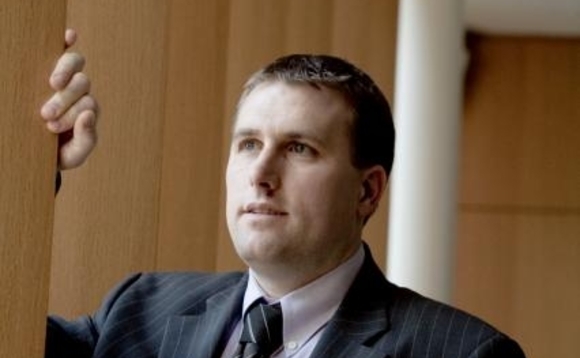
Q&A: Early-stage evolution

Bart Diels, partner at Belgian investor Gimv, speaks to Francinia Protti-Alvarez about how the venture market in the Benelux region has adapted to the changing economic climate.
How has the venture market evolved in the Benelux region in recent years?
If we go by investment statistics for the past seven years we have seen an average yearly investment volume in the Benelux market remain at around €250m, showing less volatility than in some of the other leading VC markets such as the UK and France. What we have also experienced over the last few years is an increase in the average deal size, despite the fact that it is taking longer to close deals and that the market is probably less competitive than its peers.
An interesting recent evolution, perhaps due to the crisis, is a general tendency to move away from later-stage deals and back to towards early- and mid-stage investments. The low business visibility increases the risk premium: investing now at relatively attractive prices in companies that are 'below the radar' may prove fruitful a couple of years down the road.
What are the most important challenges that the market has faced recently?
We are facing a consolidation of the venture scene. The macro-economic conditions the markets have experienced over the past year have affected most of us and, as a result, the current vintage is unlikely to be a very good one. Firms struggling with their portfolio will subsequently find it very difficult to raise funds, particularly as a lot of LP's were also seriously affected by the crisis. That said, maybe – and this is a big maybe – venture capital will succeed in attracting part of the over-allocation to large buyout firms in recent years.
This consolidation means that there will be even less competition for deals, but it will also make it considerably harder to partner up for deals. Which could increase the challenge of attracting foreign investors to the region. Therefore the Gimv strategy is really to strengthen our ties with other European tier 1 VC's.
With that in mind, what would you say makes Benelux an interesting market for foreign investors?
Certainly, the Benelux market is facing challenges but the region remains very interesting to investors. Consider the multi-lingual/multicultural environment in which most businesses are operating here, as well as the strategic location of Belgium and the Netherlands within Europe. Moreover, the region is home to high quality academic centres and technology clusters, particularly in the areas of life sciences, electronics and new materials.
The fact that the domestic markets are limited in size also means that Belgian and Dutch companies are set up with an international ambition from the start. This is not necessarily the case for companies in, for exmaple, France or Germany, where the larger size of the domestic market sometimes means they tend to take a bit longer to go international.
How do you think the market will develop in the coming years?
That is a tough question, but overall i would say that things are looking up. Provided the markets continue to slowly but surely recover we can expect to see activity pick up over the next 12-18 months, while those firms building new portfolios at the early- and mid-stage level should also see good returns for their next vintage. The trade sale environment for technology companies is clearly reactivating: Gimv, for example, recently sold Fovea to Sanofi-Aventis, and we also exited CoWare to NASDAQ-listed electronic design firm Synopsys. The IPO market, though, remains fragile.
Significantly, despite the consolidation in the VC market secondaries - which became interesting for some time last year when DFJ and Cipio acquired 3i's UK and DACH venture portfolio – may become somewhat less attractive. One could argue that the more positive outlook for exits will convince fund managers to try to manage out their portfolio themselves instead of stepping out and selling.
Latest News
Stonehage Fleming raises USD 130m for largest fund to date, eyes 2024 programme
Sponsor acquired the public software group in July 2017 via the same-year vintage Partners Group Global Value 2017
Stonehage Fleming raises USD 130m for largest fund to date, eyes 2024 programme
Czech Republic-headquartered family office is targeting DACH and CEE region deals
Stonehage Fleming raises USD 130m for largest fund to date, eyes 2024 programme
Ex-Rocket Internet leader Bettina Curtze joins Swiss VC firm as partner and CFO
Stonehage Fleming raises USD 130m for largest fund to date, eyes 2024 programme
Estonia-registered VC could bolster LP base with fresh capital from funds-of-funds or pension funds








